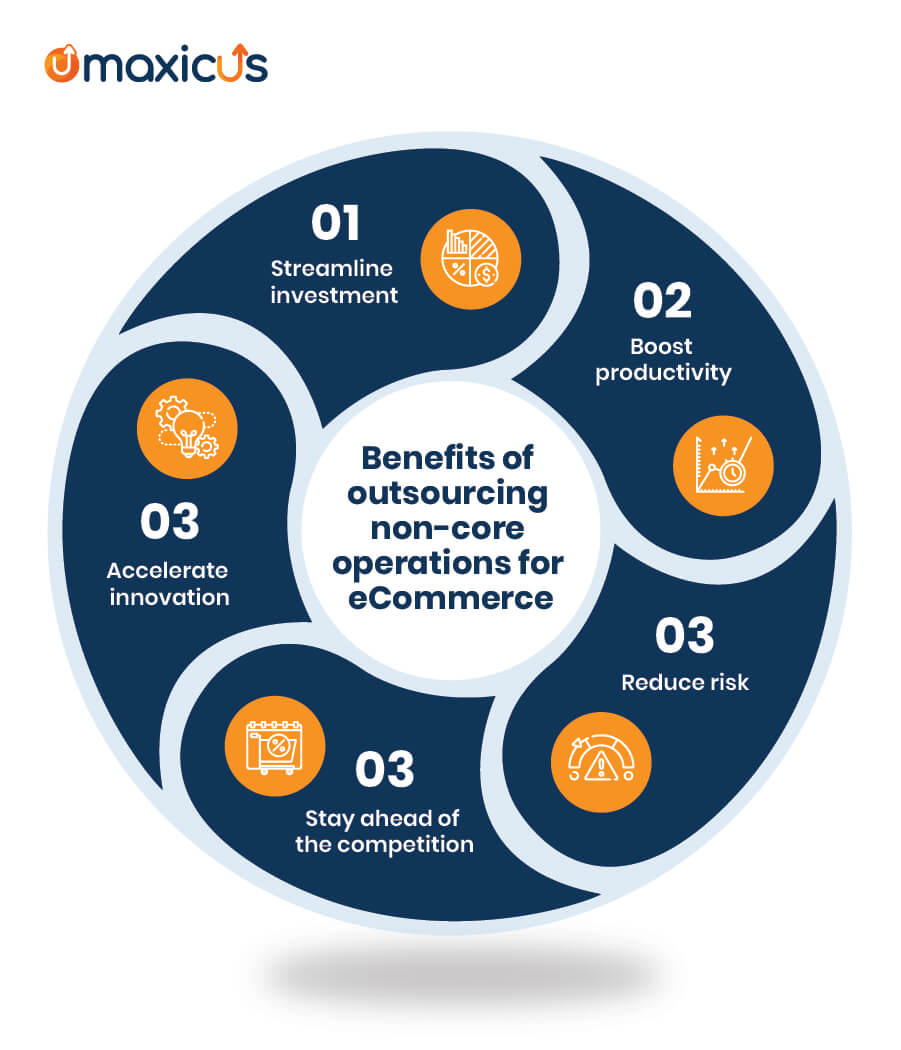Hyperlocal & Ecommerce: Market trends and how they are changing with customer behavior
Today, eShopping has given a stimulus to the hyperlocal and e-Commerce boom. With millions of customers changing their outlook and reinforcing their shopping habits, ideal market conditions have been created for the growth of the hyperlocal business model.
A Coresight research survey said, “Shopping centers/malls were expected to be the most-avoided places but more than half of respondents said they would also avoid shops in general.” (Source)
This emotion is leading people to heatedly click on a screen to land on e-commerce websites and portals. People are not going out to buy daily-used essential products when they can have everything delivered to their doorstep. E-commerce delivery companies have become quick in handling their hyperlocal delivery service. The success of e-commerce fulfillment companies is all about understanding customers’ needs and acting upon them. Customer experience has now become more important than ever for eCommerce firms. It can make or break customer satisfaction in a business.
Guide to e-commerce customer service outsourcing
The growing popularity of the hyperlocal business model
The global hyperlocal services market is estimated to record a CAGR of 17.9% from 2021 to 2027. (Source)
With the ever-changing market, businesses don’t want to fall short in any space. In an effort to maximize operations with available resources at first, brands are re-inventing ways that disrupt market taboos. Hyperlocal delivery services from food to groceries and medicine to essentials have made recovery and the Indian consumer, specifically, has been able to quickly adapt to the changes.
E-commerce delivery companies are forming partnerships with local stores to fulfill increased orders as customers are buying essentials in large volumes. The hyperlocal delivery market, a model of picking up goods from neighborhood stores and supermarkets, gained popular interest a few years ago.
A group of startups had launched attempts to ride the boom and afterward established venture capital. Bands like Grofers and Amazon were the leading players initially, setting up their warehouses instead of partnering with retailers. Swiggy, a popular food-delivery app, initially, has launched swiggy stores with retailer partnerships. Now, it is pivoted to develop stores to stock products.
Walmart-owned Flipkart made several efforts to work with retailers in order to deliver grocery orders, but launched Supermart, which also relied on its own warehouses. Currently, Grofers runs on a model where it sets up large and mini-warehouses within cities. The mini-warehouses are managed by distributors who fulfill their deliveries to keep costs in check. For offline retailers and physical retail chains, this has come as another opportunity to refine their physical presence.
Challenges ahead
Despite steady market growth rates and its growing popularity, hyperlocal e-commerce has faced several challenges from receiving massive numbers of customers onboarded who are still wary of the pervasiveness of technology, to last-mile infra issues and seamless partner coordination. As the market expands, the consolidation of this segment will be stronger but what would define a successful player in this field is a business’s ability to deliver great service with greater CX.
How Can Virtual Shopping Experience Ramp Up Your Festive Sales?
Outsourcing: For better focus, reach, and greater CX
As order volumes and customer service demand grow, many companies begin to realize that their increasingly complex operations like customer service and partner integrations are quite away from their core businesses. This starts the journey of exploring options for securing partners that can help you expand while growing with the needs of your brand.

Streamline investment
By outsourcing your non-core operations, including tech support, inventory management, warehousing, order fulfillment, returns, customer support, and business infrastructure, your business can save on upfront costs with a full-service outsourcing partner. If built and managed in-house, significant investment is required for platform implementation, systems integration, web development, back-office support, logistics, and hiring full-time employees to operate your business. Whereas outsourcing the same will only require a significantly smaller upfront investment because they will already have the people, processes, technology, and warehouses in place.
Boost productivity
As a single business, you’re unlikely to achieve the economies of scale that a full-service third-party provider can provide because of the volume of business that they conduct with technology partners, shippers, carriers, and packaging suppliers. By doing it alone, you won’t have access to the best rates for web servers, fraud protection, payment processing, web developers, tax solutions, warehousing, packaging, and shipping. However, when an outsourcing partner does it for you, their local contacts and the dedicated skilled team would be of great help to you and your business.
Reduce risk
We’re not just talking about dollars and cents (or sense) here. Investing in the requisite direct-to-consumer brand strategy, e-store promotions, customer support, warehousing, IT systems, and people is like walking a financial tightrope. However, failure is a major concern to most brands. If consumers have a negative experience while shopping directly, they’ll lose sight of your brand values and become less willing to buy in the future through any channel. Also, by focusing on your E-commerce at the expense of your core business, you’re at risk for opportunity costs.
Accelerate innovation
You can experiment with new products, new geographic markets, and new areas of promotions and customer acquisition, leaving the back office, and technical and logistical headaches to your outsourcing service provider. Outsourcing can also level the playing field with your major competitors. If they already have a thriving eCommerce business, you can regain lost ground by selecting the right full-service outsourcing partner to help you quickly come up to speed.
Stay ahead of the competition
Ecommerce has become much more complicated and complex today as the market has gone global, buyers are extremely picky and well-educated. The competition is fiercer than ever. You can no longer pump huge amounts of TV advertising around a brand and sit back and wait for the results to come in. With the rise of the Internet, social media, and global trade, winning in the E-commerce market now requires massive investments in technology and IT staffing. If you are not equipped and ready, then outsourcing your non-core operations would be a wise choice.
Download this free checklist to understand pivotal points before you hand over your work to a third party.
Hyperlocal & E-commerce: Buzzwords for the 21st-century retail market
Today, retailers are reacting differently according to the customers’ needs. Businesses are concentrating on making new business plans such as how to look at stores, how to look at hygiene, how consumer requirements will change, and how technology is rapidly changing consumer trends. Now, businesses are more focused on creating the world’s easiest user experience. Companies like Maxicus provide data security, and integration, layered with applications for user-friendly AI-assisted analysis and delightful customer experiences.
Given the opportunities, specifically, India’s demography and the adaptation of technology, the hyperlocal space is set for tremendous growth. The success in managing and fulfilling customer experiences in the hyperlocal delivery market is quite immense. Get the experts involved and watch the magic happen.










